-
 bitcoin
bitcoin $87959.907984 USD
1.34% -
 ethereum
ethereum $2920.497338 USD
3.04% -
 tether
tether $0.999775 USD
0.00% -
 xrp
xrp $2.237324 USD
8.12% -
 bnb
bnb $860.243768 USD
0.90% -
 solana
solana $138.089498 USD
5.43% -
 usd-coin
usd-coin $0.999807 USD
0.01% -
 tron
tron $0.272801 USD
-1.53% -
 dogecoin
dogecoin $0.150904 USD
2.96% -
 cardano
cardano $0.421635 USD
1.97% -
 hyperliquid
hyperliquid $32.152445 USD
2.23% -
 bitcoin-cash
bitcoin-cash $533.301069 USD
-1.94% -
 chainlink
chainlink $12.953417 USD
2.68% -
 unus-sed-leo
unus-sed-leo $9.535951 USD
0.73% -
 zcash
zcash $521.483386 USD
-2.87%
How to calculate Litecoin mining income
The process of solving complex mathematical problems to verify transactions on the blockchain, known as "mining," rewards miners with LTC for their contributions.
Jan 10, 2025 at 09:19 am
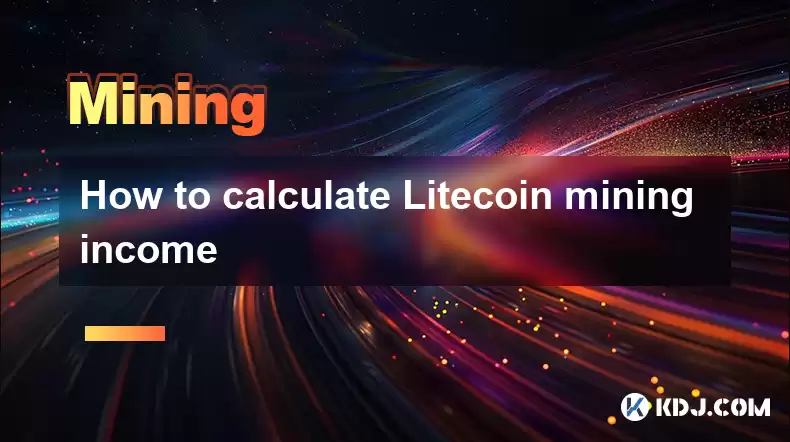
Key Points:
- Understanding Litecoin Mining Basics
- Estimating Block Rewards
- Calculating Mining Cost and Profitability
- Monitoring Hardware Performance and Energy Consumption
- Optimizing Mining Setup for Efficiency
Understanding Litecoin Mining Basics
Litecoin (LTC) is a decentralized cryptocurrency that runs on a proof-of-work consensus mechanism, similar to Bitcoin. In this system, miners use specialized hardware to solve complex mathematical problems to verify and record transactions on the blockchain, receiving LTC as a reward for their contributions.
The process of solving these mathematical problems is called "mining," and it requires significant computational power and electricity consumption. Miners who successfully solve a block and add it to the blockchain are rewarded with a block reward, which is a fixed number of LTC paid out to the miner who found the block.
Estimating Block Rewards
The Litecoin block reward is currently set at 12.5 LTC per block, and it halves approximately every 840,000 blocks. This halving event reduces the inflation rate of Litecoin, ensuring the scarcity of the cryptocurrency over time. The next halving is scheduled to occur in August 2023, bringing the block reward down to 6.25 LTC per block.
Calculating Mining Cost and Profitability
To determine the profitability of Litecoin mining, miners need to consider various factors, including:
- Hardware costs: The cost of purchasing specialized mining hardware (ASICs) can be significant, ranging from a few hundred to thousands of dollars per unit.
- Electricity costs: The energy consumption of mining hardware is high, and electricity costs can vary widely depending on location and energy tariffs.
- Maintenance costs: Miners need to factor in the potential costs of hardware maintenance, including repairs and replacements.
Once these costs are estimated, miners can use online calculators or spreadsheets to calculate their potential earnings and determine if mining is profitable given their specific variables.
Monitoring Hardware Performance and Energy Consumption
To optimize mining efficiency, it's crucial to monitor hardware performance and energy consumption. Miners can use software tools or utilities provided by hardware manufacturers to track hashrate, temperature, power consumption, and other key metrics.
By monitoring these metrics, miners can identify any hardware issues or inefficiencies and implement appropriate measures, such as adjusting cooling systems or optimizing power settings, to improve mining profitability.
Optimizing Mining Setup for Efficiency
Several strategies can be implemented to optimize mining setup for efficiency:
- Pool mining: By joining a mining pool, miners can combine their hash power with others to increase their chances of finding blocks and share the rewards.
- Overclocking hardware: Overclocking can enhance the performance of ASIC hardware, but it also increases power consumption and heat generation. It's essential to balance performance and efficiency when overclocking.
- Selecting energy-efficient hardware: Miners should consider choosing mining hardware with high energy efficiency, measured in joules per gigahash (J/GH).
- Optimizing cooling systems: Efficient cooling systems can extend hardware lifespan and reduce energy consumption by maintaining optimal operating temperatures.
FAQs:
Q: What are the best Litecoin mining pools?
A: Popular Litecoin mining pools include Litecoinpool.org, Antpool, and F2Pool. Miners should research and compare different pools to find the one that aligns with their needs and provides the best rewards and stability.
Q: What is the difference between cloud mining and solo mining?
A: Cloud mining involves renting computing power from a remote provider, eliminating the need for purchasing and maintaining physical mining hardware. Solo mining, on the other hand, involves operating one's own mining equipment and bears the full responsibility and potential rewards.
Q: Can I mine Litecoin with a home computer?
A: Home computers lack the specialized hardware and computational power required for efficient Litecoin mining. Dedicated mining hardware (ASICs) is essential for profitable Litecoin mining.
Q: Is Litecoin mining profitable in 2023?
A: The profitability of Litecoin mining is variable and depends on factors such as hardware costs, electricity rates, and the price of Litecoin. Miners should carefully consider these factors and conduct due diligence to assess the profitability of mining before committing to it.
Q: What are the tax implications of Litecoin mining?
A: Tax regulations on cryptocurrency mining vary across jurisdictions. Miners should consult with local tax authorities to understand their obligations and reporting requirements regarding Litecoin mining income.
Disclaimer:info@kdj.com
The information provided is not trading advice. kdj.com does not assume any responsibility for any investments made based on the information provided in this article. Cryptocurrencies are highly volatile and it is highly recommended that you invest with caution after thorough research!
If you believe that the content used on this website infringes your copyright, please contact us immediately (info@kdj.com) and we will delete it promptly.
- Crypto Coaster: Bitcoin Navigates Intense Liquidation Hunt as Markets Reel
- 2026-02-01 00:40:02
- Bitcoin Eyes $75,000 Retest as Early February Approaches Amid Shifting Market Sentiment
- 2026-02-01 01:20:03
- Don't Miss Out: A Rare £1 Coin with a Hidden Error Could Be Worth a Fortune!
- 2026-02-01 01:20:03
- Rare £1 Coin Error Could Be Worth £2,500: Are You Carrying a Fortune?
- 2026-02-01 00:45:01
- Navigating the Crypto Landscape: Risk vs Reward in Solana Dips and the Allure of Crypto Presales
- 2026-02-01 01:10:01
- NVIDIA CEO Jensen Huang's Take: Crypto as Energy Storage and the Evolving Role of Tech CEOs
- 2026-02-01 01:15:02
Related knowledge
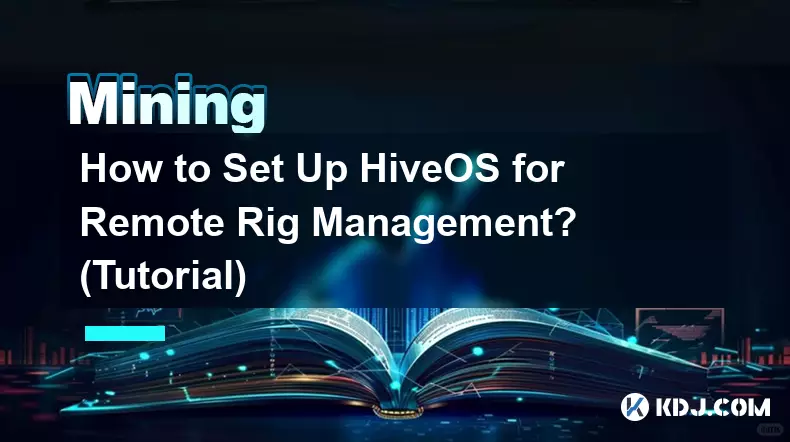
How to Set Up HiveOS for Remote Rig Management? (Tutorial)
Feb 01,2026 at 12:39am
Understanding HiveOS Fundamentals1. HiveOS is a Linux-based operating system specifically engineered for GPU mining rigs, offering lightweight perform...
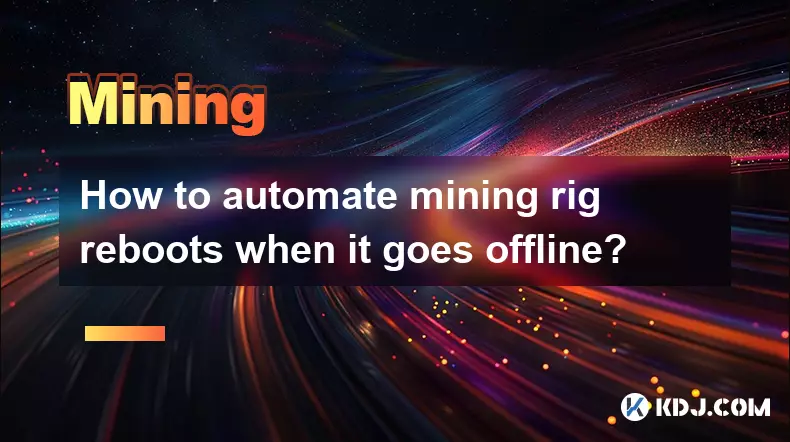
How to automate mining rig reboots when it goes offline?
Jan 23,2026 at 11:00pm
Monitoring System Integration1. Deploy a lightweight agent on the mining rig’s host OS that continuously reports hash rate, GPU temperature, and pool ...
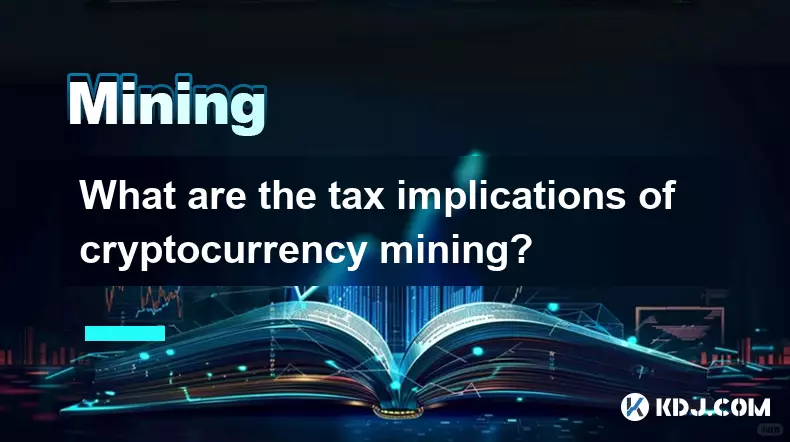
What are the tax implications of cryptocurrency mining?
Jan 23,2026 at 02:40am
Tax Treatment of Mining Rewards1. Cryptocurrency received as a reward for mining is treated as ordinary income by the IRS at the fair market value on ...
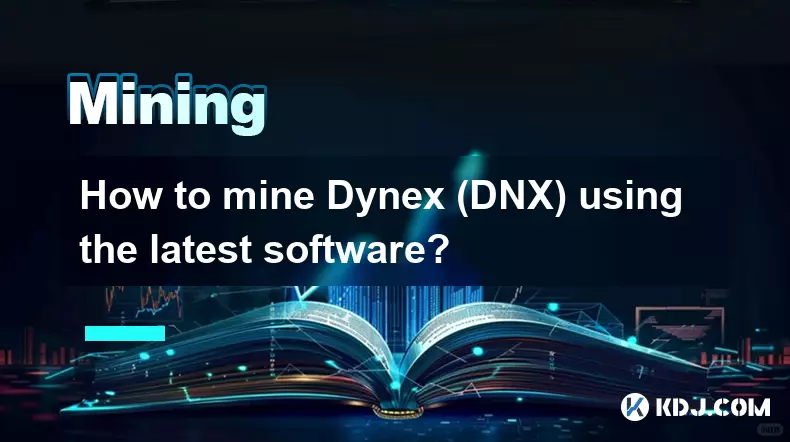
How to mine Dynex (DNX) using the latest software?
Jan 22,2026 at 10:00am
Understanding Dynex Mining Fundamentals1. Dynex (DNX) operates on a proof-of-work consensus mechanism optimized for neuromorphic computing workloads, ...
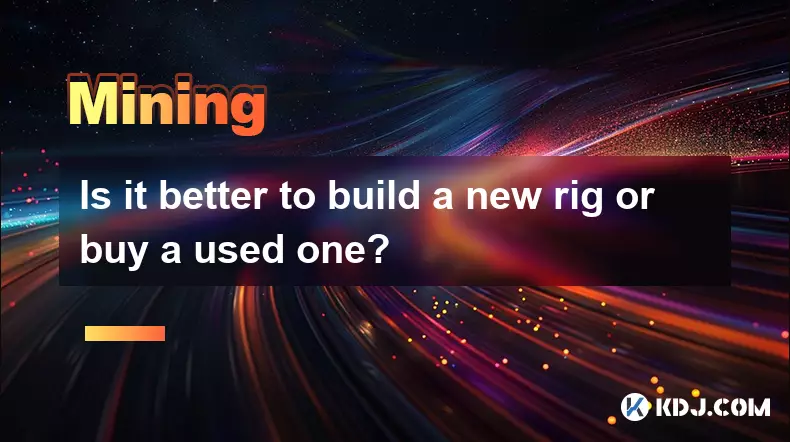
Is it better to build a new rig or buy a used one?
Jan 24,2026 at 10:20pm
Cost Efficiency Analysis1. New mining rigs come with manufacturer warranties, typically covering components for one to three years. This assurance red...
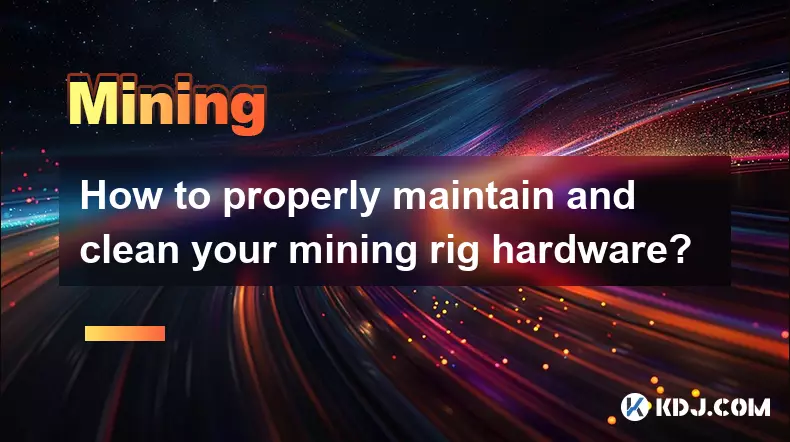
How to properly maintain and clean your mining rig hardware?
Jan 19,2026 at 11:00am
Cooling System Inspection and Optimization1. Dust accumulation inside fans and heatsinks directly reduces thermal dissipation efficiency, leading to h...

How to Set Up HiveOS for Remote Rig Management? (Tutorial)
Feb 01,2026 at 12:39am
Understanding HiveOS Fundamentals1. HiveOS is a Linux-based operating system specifically engineered for GPU mining rigs, offering lightweight perform...

How to automate mining rig reboots when it goes offline?
Jan 23,2026 at 11:00pm
Monitoring System Integration1. Deploy a lightweight agent on the mining rig’s host OS that continuously reports hash rate, GPU temperature, and pool ...

What are the tax implications of cryptocurrency mining?
Jan 23,2026 at 02:40am
Tax Treatment of Mining Rewards1. Cryptocurrency received as a reward for mining is treated as ordinary income by the IRS at the fair market value on ...

How to mine Dynex (DNX) using the latest software?
Jan 22,2026 at 10:00am
Understanding Dynex Mining Fundamentals1. Dynex (DNX) operates on a proof-of-work consensus mechanism optimized for neuromorphic computing workloads, ...

Is it better to build a new rig or buy a used one?
Jan 24,2026 at 10:20pm
Cost Efficiency Analysis1. New mining rigs come with manufacturer warranties, typically covering components for one to three years. This assurance red...

How to properly maintain and clean your mining rig hardware?
Jan 19,2026 at 11:00am
Cooling System Inspection and Optimization1. Dust accumulation inside fans and heatsinks directly reduces thermal dissipation efficiency, leading to h...
See all articles





















![THIS IS THE HARDEST COIN TO GET [POLY DASH] THIS IS THE HARDEST COIN TO GET [POLY DASH]](/uploads/2026/01/31/cryptocurrencies-news/videos/origin_697e0319ee56d_image_500_375.webp)




















































